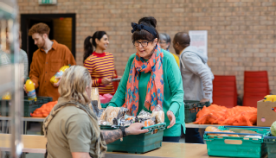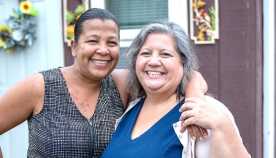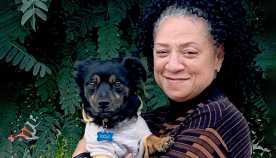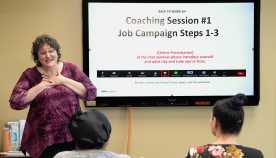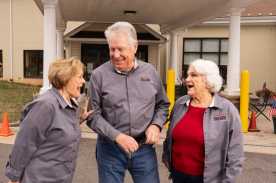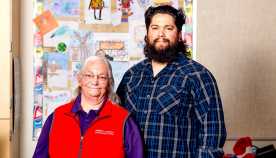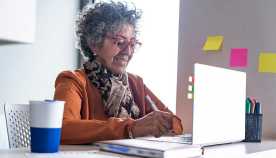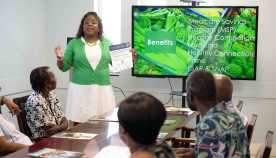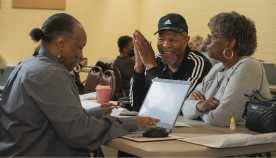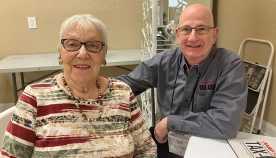About Us


To say life has been challenging for Vickie Seat would be an understatement.
Domestic violence, divorce, and family conflict have made for a hard road for Vickie, 66, who has lived most of her life in the Seattle area. She spent years in and out of jobs, almost all of them in fast food. “I had to support myself,” she says. “I always just took any job I could get.”
Following her divorce in 1999, Vickie was between jobs and so became the sole caregiver for her ailing mother and stepfather. She has six siblings, but none were able to help. “They’d say, ‘We’re married; we have children; we have jobs,’” Vickie recalls. “So it fell on me.”
In 2018, Vickie was let go from her job at the discount grocery store where she’d worked for seven months. She was living with her brother at the time; when she couldn’t pay her portion of the rent any longer, he asked her to move out. She didn’t have anywhere else to go.
For four days, Vickie lived on the streets of Bellevue, Washington. “I knew a night waiter at Denny’s who would let me lay my head down on a table, but I had to be out by 4 a.m. when the next shift started,” she remembers. “Then I would just try and stay warm. I had the same clothes on for days, the same coat, just walking around the streets.”
Vickie eventually found The Sophia Way, a women’s shelter in the area that took her in. The nine months she spent in shelters would prove to be transformative. “I felt like I was listened to there,” she says. “They didn’t judge me, and they let me know that I was loved. It was what I needed to hear.”
Eventually, Vickie moved into transitional housing, a converted garage that The Sophia Way had turned into a three-bedroom apartment she shared with three other women. “I had started getting my food stamps and Social Security, but I had to get some kind of job. I couldn’t live on $189 a month.”
That’s when Vickie heard about the AARP Foundation Senior Community Service Employment Program (SCSEP), a work-based program that places older adults with very low income in jobs at community service organizations, where they receive job training and a modest paycheck.
A friend she’d made at The Sophia Way had started a job through SCSEP a few months earlier. “She asked me if I wanted to work at a SCSEP host agency,” Vickie says. “She helped me fill out all the paperwork, got my résumé cleaned up, and got me a job at a homeless shelter called Mary’s Place.” SCSEP also paid for Vickie to take a beginning course in Microsoft Office skills to help prepare her for the workforce.
Vickie was relieved to have a job and pleased to be giving back to the shelter system that had helped her through dark times. After working at Mary’s Place for a while, she spent a year distributing food at a local food bank. At her next SCSEP assignment, she cooked and distributed meals for Hunger Intervention Program (HIP), an organization that works to combat food insecurity in her area. Her SCSEP employment specialist has been in touch regularly, making sure Vickie is comfortable in her placement and has everything she needs to do her job.
Vickie is still working at HIP, but health problems have forced her to take medical leave. “I have macular degeneration, so I’ll eventually be blind. I walk with a walker. I just had knee surgery and I’m in a lot of pain.”
All of this might make a different person give up, but not Vickie. She completed the one course she had missed by dropping out of high school and received her diploma in 2021. Next year, she will graduate from an online program with an associate’s degree in science and management. “Finally getting my diploma just inspired me to keep going. I always keep going.”
College isn’t Vickie’s only triumph over hardship. In 2021, she got her own place for the first time, a one-bedroom apartment. “I found it myself; didn’t ask for help or anything,” she says. “It was my birthday present to myself, and I’m still here. Struggling, but I’m still here.”
Learn more about AARP Foundation SCSEP and how to apply.
Read more stories about how our programs have helped people find hope, and about the volunteers who give so much of themselves to help others.


